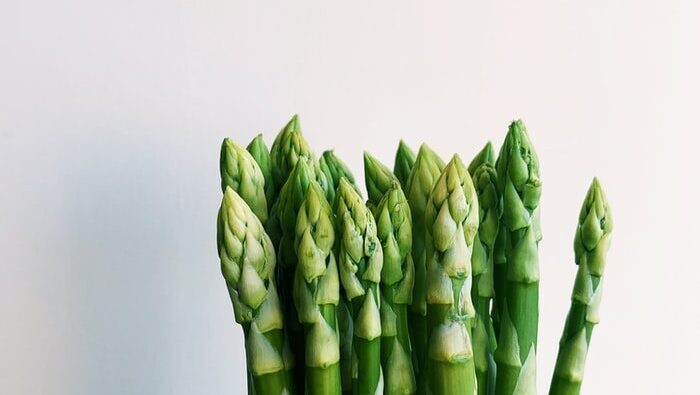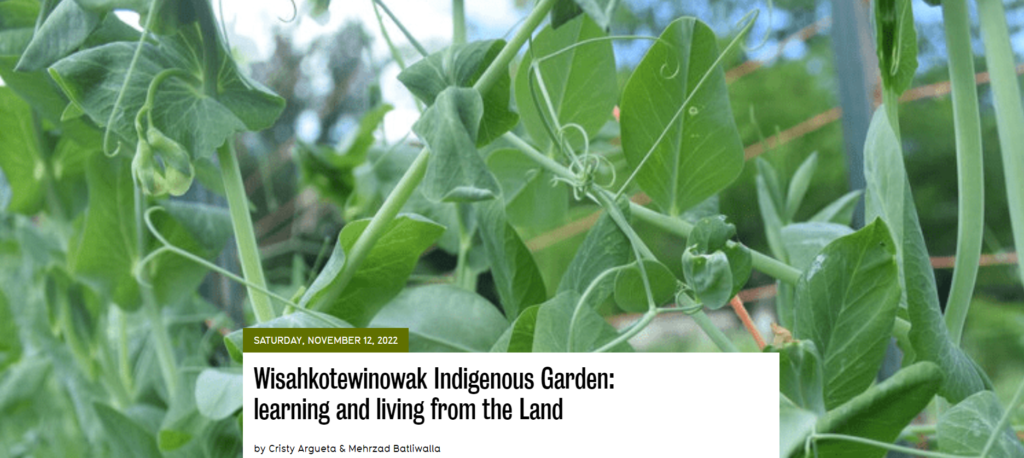
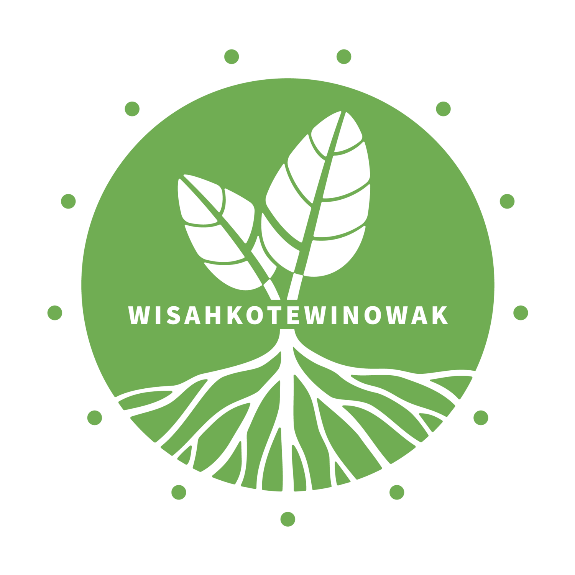
Wisahkotewinowak is an urban Indigenous Garden Collective in the Waterloo-Wellington Region working to build Land-based relationships. They are a diverse group of Indigenous (First Nation and Métis) and settler-allies. Collectively, with the wider community and our non-human kin (the Land, plants, animals, and spirit), they nurture four gardens: a Produce Garden, a Three Sisters Garden, a Teaching Garden, and a Tea Garden.
Found on the University of Waterloo Environmental Reserve, the Produce Garden grows food for cooking, preserving workshops, the Indigenous Student Centre and their weekly food basket program in partnership with the White Owl Native Ancestry Association.
On September 29th, 2022, a fourth-year class from the University of Waterloo (UW) took a trip up to the Wisahkotewinowak Produce Garden.
Connecting with Nature
As a part of course on Sustainable Food Systems in Waterloo Region taught by Dr. Steffanie Scott, the students came to the Produce Garden to learn about gardening and relationships with food and Land through an Indigenous lens. The trip was led by Dave Skene (Left), of Métis descent and Co-Executive Director at White Owl Native Ancestry Association, and Mikal Kuzmich, (Right) a Métis Land-Based Educator who encouraged everyone to form a sharing circle to introduce ourselves.
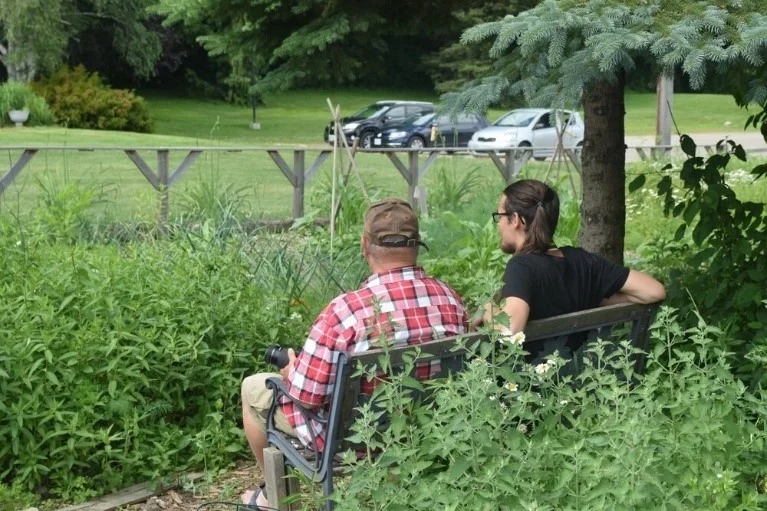
Although the students were familiar with sharing circles, as we have used thismodel in our class this term, Dave Skene offered the opportunity to participate in smudging, a sacred Indigenous practice for cleansing that was new to many of us.
Afterwards, he explained the importance of relationships with the Land and nature. Giving us a pinch of tobacco, an Indigenous medicine which we received with our left hand as it is closest to our heart, he encouraged us to take a moment to connect with a being of nature, whether it be a tree or flower, that we resonated with. To do so, he told us to approach it, introduce ourselves to the being out loud, show our gratitude for its gifts, call it by its name if we could, and offer it the tobacco.
I truly enjoyed this [part]. Personally, I chose a tree that had undergone intense color changes with fall and was mesmerizing to look at.
-Mehrzad, a UW student
I was drawn to a great oak tree. I thanked the oak for the shade it provided the picnic table next to it, for the acorns it gives the squirrels, and its beautiful, unique leaves.
-Cristy, a UW student
Sovereignty and Responsibility
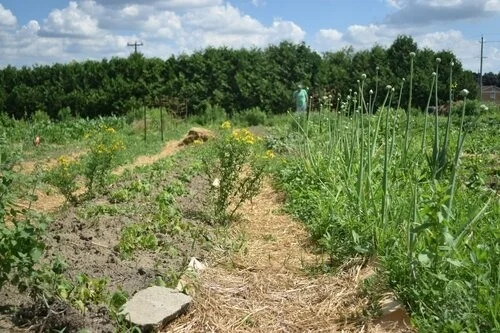
Indigenous identity is rooted in the Land. Thus, this identity is found in observing, communicating with, understanding, and learning from the Land.
How am I connected to the Land? How am I drawing my identity from the Land? Growing food [is] a part of the answer.
Dave Skene (as quoted in Martin Luther University College’s Circle of Dialogue, 2020, 5:41-6:28).
